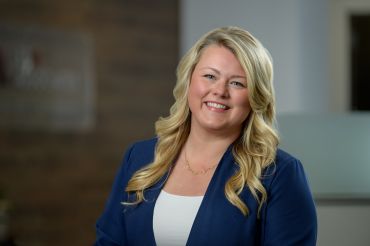Debt Pioneers: Starwood Property Trust’s Brain Trust
By Carl Gaines December 4, 2012 2:00 pm
reprints
Mr. Fellows was one of the key senior executives who led Nomura’s CRE division and helped grow it from just 12 employees to 450. The partners call Mr. Ward “a quantitative genius” or “a legend,” who is credited for many of the structural innovations that shaped the securitization of commercial real estate debt in the 1990s.
“It was the right time and it was the right place. The group was built very rapidly but was built with some of the smartest people that I’ve ever met and worked with,” said Mr. Tokarski, who joined Nomura’s CRE division in 1995 and, as a director, ran the commercial mortgage underwriting and securitization group. Originally from New Jersey, Mr. Tokarski earned a B.A. from Brown University, where he had distinguished himself in wrestling. His partners said this activity prepared him for his current role as a credit officer, negotiating with originators and borrowers.
However, the Nomura experience came to an abrupt end when the 1998 Russian debt crisis led to an almost overnight collapse of the CMBS market. Following huge losses, the Japanese bank exited the commercial real estate lending market.
“We were fully aware of the risks that we were taking, and we had full support from the management of the firm, but there was no derivative markets per se and there was no way to hedge that exposure,” Mr. Ward said. Five years later, when the team started a CRE lending platform at Countrywide Financial Corp., it remembered lessons learned from Nomura. “We took an incredibly disciplined approach to hedging and risk management, and I think we were arguably the only major CMBS player that didn’t lose a penny during 2007 and 2008,” Mr. Ward added.
In the meantime, the team had added a new member. Born and raised in South Africa, Mr. de Haan graduated from the Hotel Institute Montreux, in Switzerland, where he met his Italian-born wife. He worked in hospitality in London before moving to the U.S. to attend the Cornell University School of Hotel Administration, where he studied real estate and finance. His first job in CRE finance was at Nomura’s New York-based large loan team.
When the division moved to California, he recalled, “Chris, Boyd and Stew were already in San Francisco, and we became very good friends.” Once again, skiing and mountain biking helped cement professional relationships into friendships.
When Nomura shot down its CRE lending division, it seemed fate was pulling them back to New York. “We decided we didn’t want to leave the West Coast and go back to New York,” said Mr. de Haan. “This is when we hooked up together and we did a lot of advisory work.” Even for Mr. Tokarski, at the time the group’s only East Coast native, relocating was not a question. “I moved out to California and I love it,” he said. “I’ll never come back.”
By then it was evident that the quartet’s skill sets created a complementary and powerful team. “When we talked about going to Countrywide, we viewed it as a very good opportunity for us to use our combined experience, relationships and skills to build a very scalable business,” Mr. de Haan said of the group’s decision to head to the company in 2004.
All four initially joined Countrywide as executive vice presidents. Mr. Fellows was on the management team that founded and built Countrywide’s commercial real estate business, Mr. Ward was responsible for all capital markets activities and risk management, Mr. de Haan oversaw national originations and Mr. Tokarski was chief credit officer.
“We built Countrywide’s commercial real estate business from scratch,” Mr. Fellows said of the division that became one of the largest in the United States, closing over 100 loans a month at its peak. “One thing we always brag about is that we are the only CMBS team on the entire planet that didn’t lose money in 2007 and 2008,” he added, echoing Mr. Ward’s sentiment.
Nonetheless, with the financial crisis, Countrywide Financial was sold to Bank of America (BAC) in 2008, and the CMBS team was let go. “It happened to a lot of firms at the time,” said Mr. Fellows. “We went back to start our own business again—Coastal Capital.”
The team could have gone ahead with its own business, but around the same time, Mr. Sternlicht was making moves in the commercial real estate lending market. In 2009, he launched Starwood (STWD) Property Trust, a publicly traded investment bank that invests in and originates commercial real estate debt. Its initial public offering raised $950 million.
Mr. Sternlicht had known Messrs. Fellows and Ward since 1994, when Nomura provided the financing for his $561 million acquisition of the Westin Hotel Co. from Aoki Corp.
On a recent phone call with The Mortgage Observer, Mr. Sternlicht recalled that he had once worked on a hotel financing transaction with Mr. de Haan. Mr. Tokarski, meanwhile, was on his radar as a fellow Brown University alumnus. “They were very well-known in the debt space,” Mr. Sternlicht said, noting that the group’s cross-country lending relationships made it a good fit for the REIT.
“He raised the capital, but he needed a team. We were a team, but needed the capital,” Mr. Fellows said. “I can’t remember how many people he hired at the one time, but probably about 15. And—bam!—that was able to turbo-charge the REIT, which grew much more quickly and handled many more transactions.”


